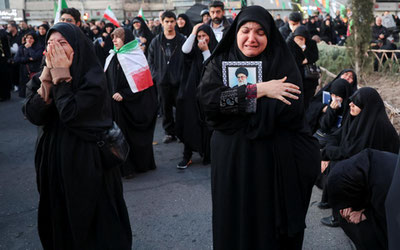Today, July 9, according to a rapid scientific analysis published, heatwaves in 12 European cities claimed the lives of nearly 2300 people. This was reported by "Reuters" here, citing research from Imperial College London and the London School of Hygiene and Tropical Medicine.
The study covered a 10-day period when large parts of Western Europe suffered from extreme heat, with temperatures in Spain exceeding 40 degrees Celsius, and forest fires escalating in France.
The research indicated that out of the 2300 people who died during that period, 1500 deaths were linked to climate change that intensified the heat.
Dr. Ben Clarke, a researcher at Imperial College London, commented on the matter:
“Climate change has made the weather hotter than before, which in turn makes it more dangerous”.
The study encompassed 12 cities including Barcelona, Madrid, London, and Milan and, according to the scientists, climate change has increased temperatures by up to 4 degrees Celsius during heatwaves.
To count the number of deaths, scientists used confirmed epidemiological models and historical data on deaths, reflecting cases where heat was a primary cause, including conditions exacerbated by the heat.
As the scientists pointed out, they used methods reviewed by experts to quickly approximate the number of victims because most heat-related deaths are not officially documented and some governments do not publish data.
The report states that Western Europe experienced the hottest June on record, with most of the region facing “very severe heat stress” this year.
Last week, a 10-year-old American girl fell ill while waiting in line at a museum with her parents in Paris and later died under the abnormal heatwave conditions.
On July 7, Greek officials introduced mandatory work breaks in regions of the country expecting temperatures to exceed 40 degrees Celsius.
Meanwhile, forest fires have begun in Greece's Crete Island and Turkey. The south of France and Catalonia are also dealing with firefighting efforts.






